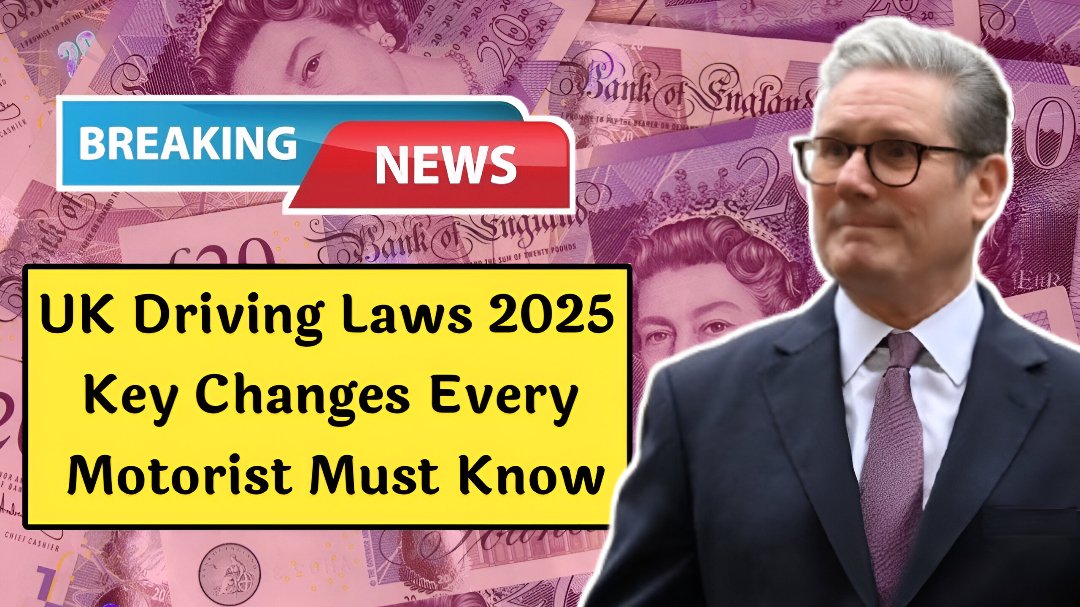The year 2025 is bringing some of the most significant updates to UK driving laws in recent history. From stricter rules on emissions to new penalties for mobile phone use, every driver across England, Scotland, Wales, and Northern Ireland needs to be aware of what’s changing. Missing these updates could not only cost motorists hundreds of pounds in fines but also risk penalty points, bans, or higher insurance premiums.
These new laws affect young drivers, elderly motorists, and even professional drivers. If you’re hitting the road in 2025, here’s everything you need to know about the updates coming your way.
Stricter Rules on Mobile Phone Use While Driving
One of the biggest changes for 2025 is the complete crackdown on mobile phone use behind the wheel. Previously, drivers could still get away with using their phone in “hands-free” mode. But under the new law, tougher restrictions mean that any form of interaction with your mobile while driving—even checking maps or changing music—could result in a £200 fine and six penalty points.

The government has made this move to reduce accidents caused by driver distraction. According to road safety charities, even a split-second glance at your phone can increase accident risk dramatically. For motorists, this means making sure your sat-nav or playlist is set before starting your journey.
Expansion of Clean Air Zones Across the UK
Another major update for 2025 is the expansion of Clean Air Zones (CAZs) and stricter ULEZ (Ultra Low Emission Zone) rules. Cities including Manchester, Bristol, and Birmingham will now enforce tougher restrictions on high-polluting vehicles, similar to the existing London ULEZ.
Drivers of older petrol and diesel vehicles will face daily charges of around £12.50–£15 to enter these zones. For commercial drivers, such as van and lorry operators, costs could be even higher. Motorists are being encouraged to switch to hybrid or electric vehicles, with the government continuing to provide grants and tax incentives for greener alternatives.
New Speed Limit Rules in Built-Up Areas
From September 2025, several regions across the UK are adopting 20mph speed limits in built-up residential areas, following successful trials in Wales and parts of London. This change is designed to improve pedestrian and cyclist safety.
Drivers caught exceeding these limits could face fines starting at £100 and three penalty points, with higher penalties for excessive speeding. Local councils have been given more power to install speed cameras, meaning enforcement will be stricter than ever.
Changes to MOT Testing Rules
The MOT system is also getting an overhaul in 2025. Under the new rules, electric vehicles (EVs) and hybrid cars will face special battery health checks as part of their MOT. This ensures drivers are maintaining safe and efficient vehicles as EV adoption continues to rise.
Additionally, the first MOT for new vehicles will now be pushed to four years instead of three, reducing costs for new car owners but also placing more responsibility on drivers to keep their vehicles safe.
Harsher Penalties for Drink and Drug Driving
Drink-driving limits remain the same, but new testing laws mean police will be carrying out more roadside checks with advanced detection technology. There will also be a zero-tolerance approach to drug driving, with stricter checks for prescription and illegal drugs.
Penalties remain severe, including unlimited fines, driving bans, and up to six months in prison for serious offences. The message is clear: there will be no excuses in 2025.
Digital Driving Licences and Vehicle Documents
One of the most exciting updates is the gradual rollout of digital driving licences in 2025. Drivers in the UK will be able to access their licence through a secure government app, making it easier to prove identity and vehicle eligibility. Insurance and vehicle tax records are also expected to move fully online.
While the plastic licence card will remain valid, the shift to digital is part of the UK’s long-term plan to modernise motoring administration and reduce fraud.
What These Changes Mean for UK Motorists
For everyday drivers, the 2025 law changes mean more responsibility on the road. Fines for speeding, mobile use, and emissions are going up, and councils will have more power to enforce penalties locally.
At the same time, the push for electric vehicles and cleaner air means motorists may need to consider upgrading their vehicles sooner than planned. Digital licences and MOT updates, however, will make life easier for drivers, reducing paperwork and giving peace of mind.
Final Thoughts
The UK’s driving laws for 2025 reflect a broader government push towards road safety, cleaner air, and digital innovation. While some drivers may find the new penalties tough, these changes are ultimately designed to save lives and protect the environment.
If you’re a UK motorist, the best way to stay safe—and avoid costly fines—is to familiarise yourself with these new rules now. By doing so, you’ll not only keep your licence clean but also contribute to safer, greener roads across the country.
